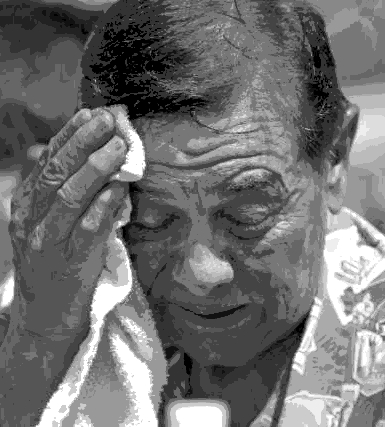Climate effects will claim lives soon
 One Australian expert says climate change is going to become a serious public health and safety risk.
One Australian expert says climate change is going to become a serious public health and safety risk.
A growing number of medicos say that in view of the disastrous implications of global warming for human health, educating medical students about climate change is crucial.
“They will be the future doctors who have to deal with its massive health impacts,” says Flinders University’s Dr Ingo Weber.
“Our health services and infrastructure are not prepared for the health impacts we are going to be facing in Australia.”
“A lot of people will be suffering from heat effects in many different ways, and doctors and other health professionals need to be prepared for that.
“It’s the young and the elderly who will be most affected. With our ageing population demanding more health services anyway, on top of that we are going to have these extremes of weather to contend with, placing a major strain on our health and hospital systems.”
Dr Weber said Indigenous populations in rural areas will be particularly vulnerable.
“People who already have a lot of co-morbidities or other illnesses to contend with, be it renal failure, heart disease or diabetes, along with the elderly and the very young, will be the most affected,” he said.
“Climate change is biting already – in the last 15 years we’ve had 10 of the hottest years ever recorded.”
Dr Weber said that while climate change knows no borders, in proportional terms Australia is likely to feel the changes severely.
The recent drought and its effect on the Murray Darling Basin has offered a taste of what is to come, particularly in its implications for mental health.
“The people who are going to be physically and psychological affected by more severe weather and droughts are our farmers, the people who supply our bread and butter and are already doing it tough,” he said.
Dr Weber said the increase of mental health problems including depression, anxiety, post-traumatic stress disorder and suicide in times of drought is already recognised. Increasingly frequent and more severe and extreme weather conditions, brought about by global warming will act as a threat multiplier, he said.
“This is going to take a heavy toll on farmers in particular, who are already having a tough time.”
On a global scale it is the poorest populations of developing countries, which already struggle to achieve basic levels of health and have least contributed to climate change who are going to be especially vulnerable to climate change and suffer most from the health impacts.
“We are at risk of reversing the all the good work we have done in reducing paediatric and maternal mortality and morbidity rates,” Dr Weber said,
Dr Weber said doctors and health professionals have a duty to communicate the urgency of the threats to health and to life.
“It’s not just a case of telling the students that they will have a few more patients with heat stress: I am pointing the finger directly at them to say that as doctors and medical students we have a duty to act as health advocates. Our society expects us to have a role in protecting their health, not just in treating our patients in our clinical practice.”
“Our responsibility changes in the face of an urgent threat, when we become responsible not for just one life, but for millions of lives.”







 Print
Print